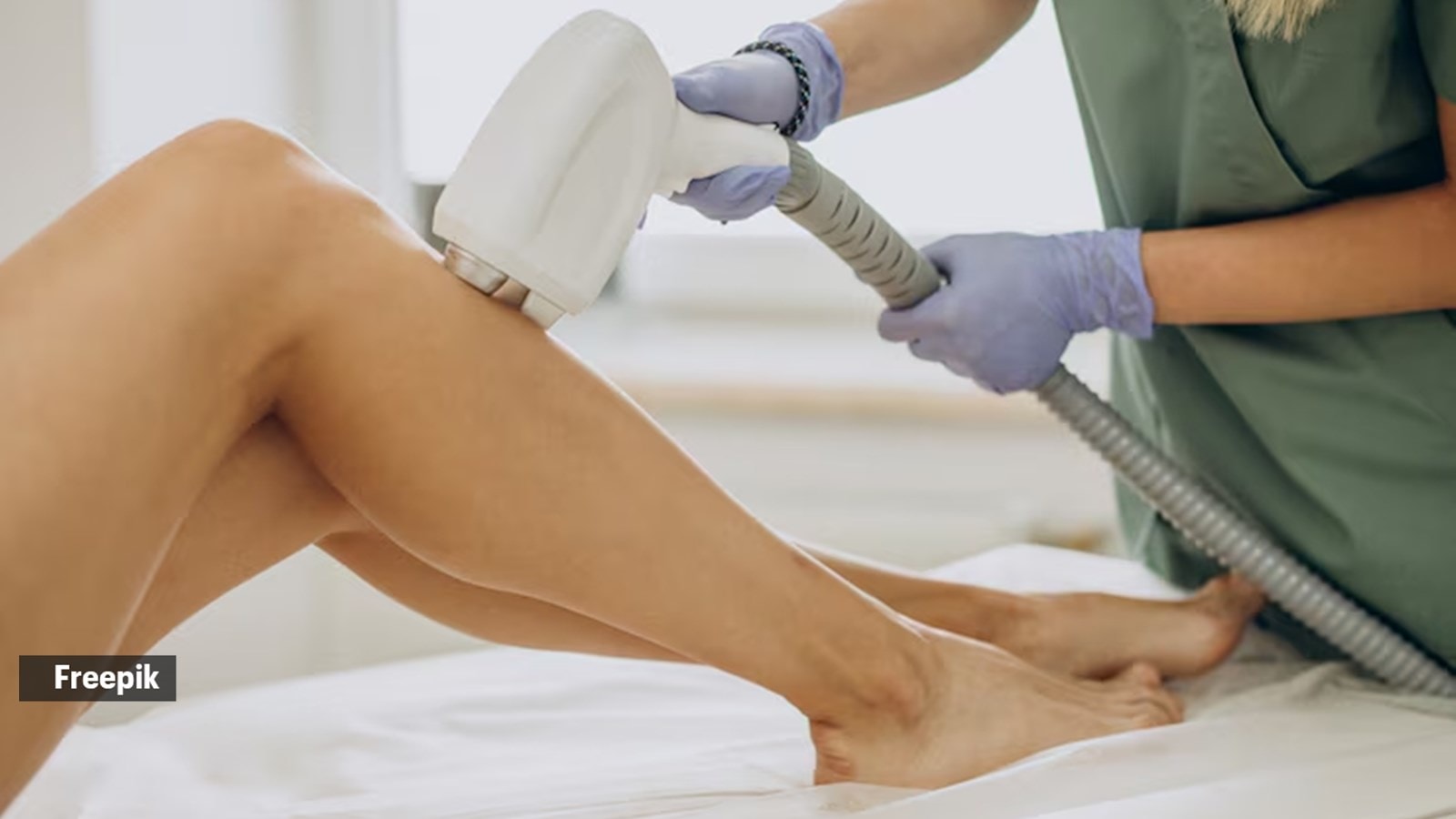📣 For more lifestyle news, click here to join our WhatsApp Channel and also follow us on Instagram
‘Rebel Kid’ Apoorva Mukhija gets laser hair removal done despite tattoos: ‘Waxing wali didi ne bola tha aapki mardo se zyada growth aati hai’
Laser hair reduction is powerful but unforgiving when not done in a professional setup, especially around tattoos. Always choose safety, expertise, and proper shielding.
 Apoorva documents her laser hair removal experience (Source: Instagram/@the.rebel.kid)
Apoorva documents her laser hair removal experience (Source: Instagram/@the.rebel.kid)Digital creator Apoorva Mukhija, aka The Rebel Kid, recently took us through her experience of getting laser hair removal done. However, the multiple tattoos on her arm raised concerns about the safety of the treatment administered.
Recounting a childhood memory, Mukhija explained her choice of the treatment: “Main last 10 saalon se shave kar rahi hoon, kyunki waxing wali didi ne bola tha aapki mardo se zyada growth aati hai. And the only area where I want mardo se zyada growth is in gaslighting people, so I did not like it, and mujhe bohot zyada bura lag gaya.” (I have been shaving exclusively for the last 10 years, because a waxing lady had told me I get more growth than a man, and the only area where I want more growth than men is in gaslighting, so I did not like it, and I felt really bad)
When considering laser hair reduction, especially if you have tattoos, it’s crucial to understand how lasers work and why a professional setup is non-negotiable for your safety. Dr Sunita Naik, Dermatologist and Head Medical Advisor at Kaya Limited, walked us through the pitfalls to be wary of.
Understanding how laser hair removal works
“Laser hair reduction targets dark hair using energy absorbed by melanin (pigment) in the hair roots, selectively heating and disabling the follicle,” she explained.
Because the technology is designed for contrast, it works best on:
- Black or brown hair (high melanin)
- Skin Type 1-4 (low pigment outside the hair)
- Skin type 5/6 with specific parameters
“Blonde, white, or grey hair lacks melanin and won’t respond to traditional hair reduction lasers. The laser simply cannot ‘see’ these lighter hair and passes through with little effect,” said the expert.
 Laser hair removal can be risky if you have tattoos (Source: Freepik)
Laser hair removal can be risky if you have tattoos (Source: Freepik)
Why is getting a laser when you have tattoos risky?
Dr Naik said that tattoo ink contains dark pigments like black, blue, red, and green, precisely what hair reduction lasers seek. When the laser energy hits a tattoo:
•Intense absorption occurs, heating the ink and causing potential skin burns, painful blistering, and scarring.
•Tattoo distortion or fading may result as the pigment’s structure is damaged.
•Pigmentation changes (hyperpigmentation or hypopigmentation) or inflammatory responses are common complications.
“If you try to do this treatment directly over a tattoo, expect a high risk of burns, damage, lasting skin changes, and loss of tattoo quality,” she said.
What should you keep in mind?
“When selecting the right place for the treatment, it’s important to strike a balance between safety, effectiveness, and expertise, especially if you have tattoos. The safest choice is always a dermatologist-led practice that uses modern, FDA-approved laser machines only,” said Dr Naik.
Technology in this field advances quickly, and updated devices in skilled hands can make all the difference in achieving results while avoiding complications.
Equally important are well-trained technicians who understand different skin types, hair colours, and how tattoos interact with laser light. “They must know how to shield tattoos, maintain a safe gap, and adjust energy settings to prevent burns or pigment damage,” she mentioned, adding that high standards of hygiene are non-negotiable, as poor cleanliness can lead to infections, especially in areas where the skin barrier is temporarily compromised after treatment.
On the flip side, getting laser hair reduction at non-professional setups such as home service providers, beauty spas, or with untrained operators greatly increases risks. “Most importantly, without medical oversight, any burns, scarring, pigmentation changes, or tattoo damage may go untreated, leading to long-term problems,” said Dr Naik.
Dermatologist’s safety guide:
•Never lase directly on tattoos. Instead, cover your tattoo completely with an opaque barrier like white tape, silicone patches, or medical shields to prevent exposure.
•Always keep a minimum 2cm gap between the laser treatment zone and the tattoo edge.
•Inform your technician about all tattoos, no matter their size or colour.
•Insist on seeing shielding and safety protocols before your session. If these are not offered, do not proceed.
•For hair on tattooed skin, choose safer, non-laser techniques: waxing, shaving, threading, or electrolysis.
If you are among those who love smooth skin and are planning to opt for laser hair removal, then you need to keep certain things in mind before the procedure to make it more effective. Dr Geetika Mittal Gupta, a dermatologist, took to Instagram to explain certain dos and don’ts before the procedure. Read on to learn more.
📣 For more lifestyle news, click here to join our WhatsApp Channel and also follow us on Instagram
- 01
- 02
- 03
- 04
- 05



























